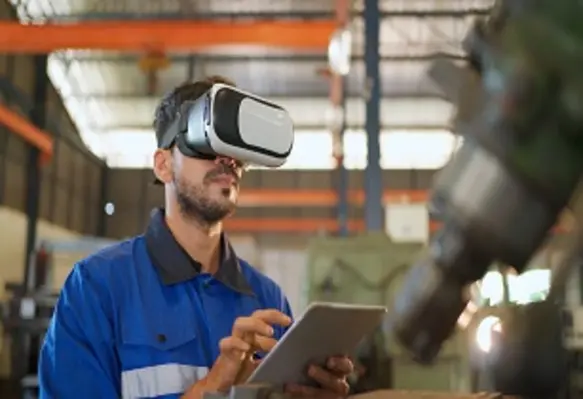According to a report by the International Association of Oil & Gas Producers, gamification has emerged as a powerful tool for enhancing workplace learning, and its impact is evident across the oil and gas industry
By leveraging Virtual Reality (VR), companies in this industry are revolutionising the way they impart knowledge and skills, resulting in increased engagement and improved performance according to the report, titled Gamification techniques in well control training and competency.
A meta-analytical study has confirmed that gamification yields positive effects on cognitive, motivational, and behavioural learning outcomes, aligning well with the multifaceted demands of the oil and gas industry. By incorporating game elements into training, companies can enhance the learning experience and create a sense of engagement and enjoyment among employees. These findings substantiate gamification's potential to drive productivity and improve job satisfaction.
Furthermore, gamification's utilitarian aspects are of paramount importance. This involves making training tasks more enjoyable and rewarding, thus enhancing learning effectiveness. Through techniques like rewards, leaderboards, and points systems, employees are motivated to accomplish learning objectives. Such an approach not only improves knowledge retention but also drives efficiency in handling critical tasks within this high-stakes industry.
Ease of use is also a pivotal factor in designing gamified learning experiences for oil and gas professionals. VR simulations, a popular application of gamification in this sector, must be intuitive and user-friendly. Navigating complex tasks like well control training can be simplified through VR simulations that offer clear instructions, intuitive controls, and visual feedback. This ensures that employees, regardless of their background, can seamlessly engage with the training, fostering a productive learning environment.
The oil and gas industry demands not only engaging but also useful training programmes. Gamification's usefulness lies in its ability to impart practical knowledge and skill mastery. VR simulations can immerse employees in real-life scenarios, allowing them to learn by doing. These simulations enable learners to enhance competencies required for tasks like well control while ensuring that the training is efficient and aligned with industry demands.
Incorporating hedonic aspects into gamified oil and gas training programmes is vital to sustain engagement and motivation. Playfulness and enjoyment are key drivers that ensure employees remain committed to their learning journey. VR simulations can infuse rewards, balanced challenges, social interactions, and storytelling elements to make the training experience not only informative but also enjoyable. This approach fosters a sense of accomplishment and satisfaction, motivating employees to excel in their roles.
The oil and gas industry's integration of gamification, particularly through VR-based training, showcases a forward-thinking approach to enhancing employee skills and performance. By embracing the utilitarian and hedonic aspects of gamification, companies can create immersive, efficient, and enjoyable training experiences. As this sector continues to evolve, the synergy between gamification and VR training holds immense potential to drive innovation, safety, and success.
Overall, the report found positive effects in learning which resulted in increased engagement, retention problem-solving abilities, motivation and sense of accomplishment.
The report can be downloaded from the IOGP bookstore at https://www.iogp.org/bookstore/product/gamification-techniques-in-well-control-training-and-competency/










